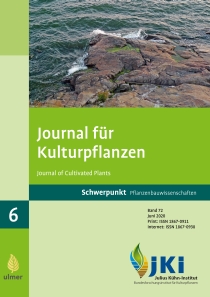Socioeconomic aspects of genome editing in crops: The case of the value chains of wheat
DOI:
https://doi.org/10.5073/JfK.2020.06.02Keywords:
genome editing, costs, benefits, value chain analysis, wheat, fungal resistance, coeliac diseaseAbstract
Genome editing (GE) offers numerous opportunities to improve crops with high accuracy and speed. However, the understanding of the socioeconomic impact of GE on agribusiness is insufficient. The objective of this qualitative study is to analyze how GE could affect agricultural value chains. A value chain analysis based on the hypothetical cases of using fungal-resistant and coeliac-safe wheat in Germany was conducted in order to assess the costs and benefits of the analyzed crops along the value chains of wheat. Primary data was collected by semi-structured expert interviews with associations and companies operating in the value chains of wheat. The results show that the use of fungal-resistant and coeliac-safe wheat leads to benefits at each step of the value chains. However, the results also show that low acceptance of genome editing by society and food retailers poses a significant barrier for the adoption of genome-edited crops in agricultural value chains.
Downloads
Published
Issue
Section
License
The content of the journal is licensed under the Creative Commons Attribution 4.0 License. Any user is free to share and adapt (remix, transform, build upon) the content as long as the original publication is attributed (authors, title, year, journal, issue, pages).
The copyright of the published work remains with the authors. The authors grant the Journal of Cultivated Plants, the Julius Kühn-Institut and the OpenAgrar repository the non-exclusive right to distribute and exploit the work.







